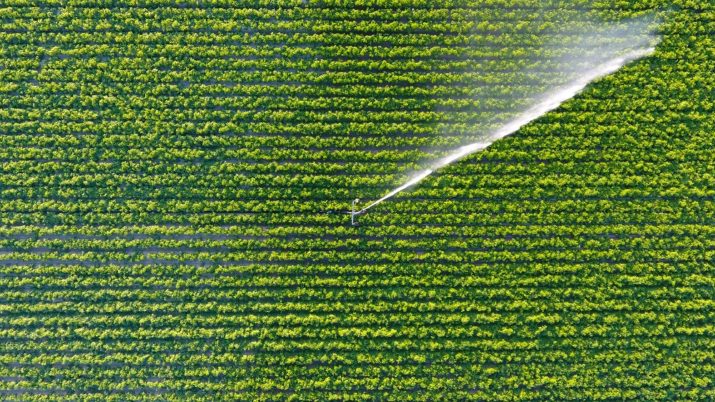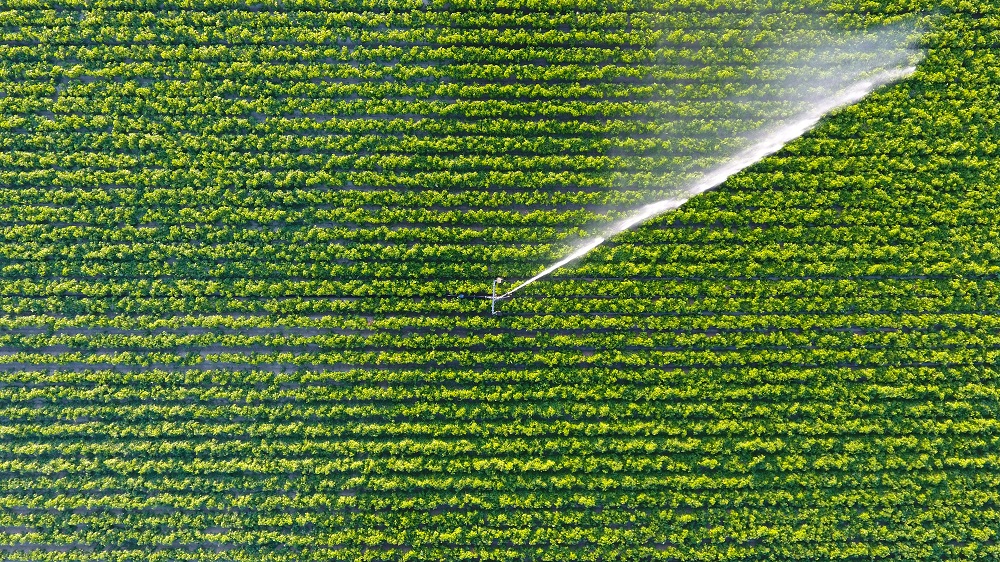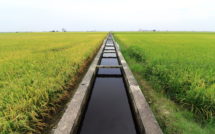

This is part of our Campus Feature on Water Centers & Institutes.
Founded in January 2008, the Columbia Water Center (CWC) is committed to understanding and addressing both the role and scarcity of fresh water in the 21st century. The CWC was established for the purpose of studying the diminishing levels of fresh water and creating innovative sustainable and global solutions. CWC combines multidisciplinary academic research with solutions-based fieldwork to develop and test creative responses to water challenges around the world.
Our mission is to creatively tackle water challenges of a rapidly changing world where water and climate interact with food, energy, ecosystems and urbanization.
Dr. Upmanu Lall is the founder and director of the Columbia Water Center. Lall has broad interests in hydrology, climate dynamics, water resource systems analysis, risk management and sustainability. He is motivated by challenging questions at the intersection of these fields, especially where they have relevance to societal outcomes or to the advancement of science towards innovative application. He has been engaged in high level public and scientific discussion through the media, the World Economic Forum, and with governments, foundations, development banks, and corporations. He has served on several national and international panels. He was one of the originators of the Consortium of Universities for the Advancement of Hydrologic Science, and is currently the President-Elect of the Natural Hazards Focus Group of the American Geophysical Union.
As worldwide populations grow and affluence increases, the demand for food and water is on the rise. At the same time, climate variability and change are making it difficult to provide water where and when it is needed. Floods destroy communities in one part of the world, while in another people trek miles every day just to get enough water to survive. Given its pervasiveness and the need for local action, water scarcity is becoming one of the most difficult challenges we need to address in the 21st century.
The Columbia Water Center is researching innovative solutions to these problems—recognizing the public and private sector roles and opportunities, and the unique water, climate and socio-economic settings around the world. Our work stresses analytics at multiple scales, from technologies at the farm level, to new systems-level thinking in the design of urban smart water grids, reservoir and groundwater operations, ecosystems restoration, water-informed agriculture and food procurement and national and regional water policy. Sophisticated water demand/supply and flood forecasts using climate information and their integration with financial risk management instruments are central to our work.
Our work is categorized into several research themes with some examples of specific projects in each area:
- Resilience: Predict & Manage Climate, Water, Energy, Food Futures
Globalization, Climate & Flood Risk Mitigation
Water Infrastructure for the 21st century- America’s Water Initiative: Envisioning the future of water in the United States
- Mining, Climate, Water & Financial Risks
- Mining and Water Risk: Diagnosis, Benchmarking and Quantitative Analysis of Financial Impacts
A BETTER PLANET BY DESIGN
Introduction to design for a sustainable planet. Scientific understanding of the challenges. Innovative technologies for water, energy, food, materials provision. Multi-scale modeling and conceptual framework for understanding environmental, resource, human, ecological and economic impacts and design performance evaluation. Focus on the linkages between planetary, regional and urban water, energy, mineral, food, climate, economic and ecological cycles. Solution strategies for developed and developing country settings.
ENVIR DATA ANALYSIS & MODELING
Prerequisites: (SIEO W3600) or (STAT GU4001) or
Statistical methods for the analysis of the space and time structure in environmental data. Application to problems of climate variation and change; hydrology; air, water and soil pollution dynamics; disease propagation; ecological change; and resource assessment. Applications are developed using the ArcView Geographical Information System (GIS), integrated with currently available statistical packages. Team projects that lead to publication-quality analyses of data in various environmental fields of interest. An interdisciplinary perspective is emphasized in this applications-oriented class.
MGMT & DEVPT OF WATER SYSTEMS
Decision analytic framework for operating, managing, and planning water systems, considering changing climate, values and needs. Public and private sector models explored through US-international case studies on topics ranging from integrated watershed management to the analysis of specific projects for flood mitigation, water and wastewater treatment, or distribution system evaluation and improvement.
As part of our America’s Water NFS funded project, America’s Water: The Changing Landscape of Risk, Competing Demands and Climate, we hosted 6 events over six years:
2018 – America’s Water: We Know the Problems, We Know the Solutions, The U.S. Can Get to an A Rating
2018 – America’s Water: The Changing Landscape of Risk, Competing Demands and Climate
2017 – Americas’ Water: When Global Challenges Hit Home
2016 – America’s Water: Innovation at Work
2015 – America’s Water: Partnering Science with Industry to Find a Way Forward
2013 – America’s Water in a Global Context
As part of the Norges Bank Investment Management project, Mining and Water Risk: Diagnosis, Benchmarking and Quantitative Analysis of Financial Impacts, we hosted 2 events over two years:
Global Workshop on Mining-related Water and Environmental Risks and their Financial Implications
Dr. Upmanu Lall is the Director of the Columbia Water Center and the Alan and Carol Silberstein Professor of Engineering at Columbia University. He has broad interests in hydrology, climate dynamics, water resource systems analysis, risk management and sustainability. He is motivated by challenging questions at the intersection of these fields, especially where they have relevance to societal outcomes or to the advancement of science towards innovative application. He has been engaged in high level public and scientific discussion through the media, the World Economic Forum, and with governments, foundations, development banks, and corporations. He has served on several national and international panels. He was one of the originators of the Consortium of Universities for the Advancement of Hydrologic Science, and is currently the President-Elect of the Natural Hazards Focus Group of the American Geophysical Union.
Photo: Irrigation fields | Shutterstock
Published on December 11, 2018.




